Automotive
/Home & Leisure
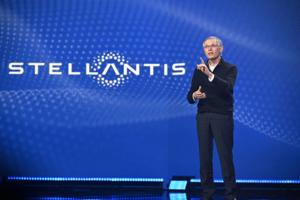
Why Stellantis CEO says US market needs fixing after dismal first-half performance
Last year, Stellantis NV notched record-high profit and revenue results, but this year, not so much.
On Thursday, the maker of Chrysler, Dodge, Jeep and Ram, as well as other brands sold around the world, said its net profit tumbled by almost half in the first six months of the year to $6.1 billion (5.6 billion euro) compared to the same period...Read more
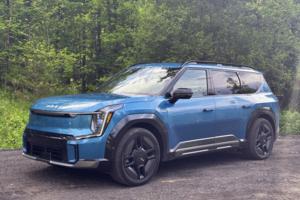
Auto review: 2024 KIA EV9 is EV comfort with a luxury price
When KIA enters Grasso’s Garage, it’s all about pricing, style and comfort. With the EV market in full force, the EV9 was released to satisfy consumers with big families looking for space and storage. Although our EV9 GT-Line AWD tester is really a great vehicle overall, the price tag is the elephant in the room.
With a starting price just ...Read more
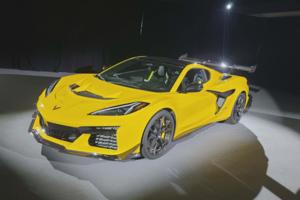
Henry Payne: Corvette ZR1 drops mic with 1,000+ horsepower
STERLING HEIGHTS, Michigan — Corvette has blown past the 1,000-horsepower marker.
Chevy introduced its fastest, track-focused, 2025 ZR1 model Thursday with a twin-turbocharged, 5.5-liter V-8 engine that makes a stratospheric 1,064 horsepower — the first ‘Vette to hit quadruple digits. The number puts the mid-engine sportscar in elite, ...Read more
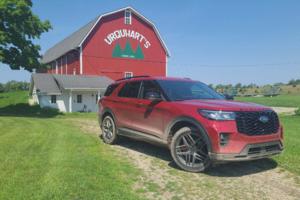
Auto review: Ford Explorer ups game with interior remake, BlueCruise
DEXTER, Michigan — Like America’s No. 1 movie, Ford has gone “Inside Out” to sell tickets.
The handsome Explorer exterior now has interior toys to match. On course to load up on cider ‘n’ doughnuts at Jenny’s Farm Stand and Cider Mill in Dexter, I poked the BlueCruise button on my $50K 2025 tester’s steering wheel and the ...Read more
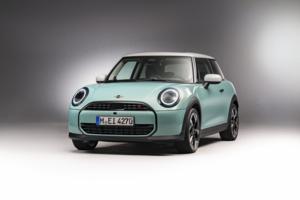
Auto review: 2025 Mini Cooper S Hardtop: a beguiling icon returns
In an automotive market where size and girth matter most, the 2025 Mini Cooper remains the contrarian, a small gem that looms large when it comes to driving fun, fuel economy and unabashed style. It’s a design icon, one feted last week at the ninth Mini Takes The States, or MTTS for short.
The biennial trek, open to Mini owners, originated in...Read more
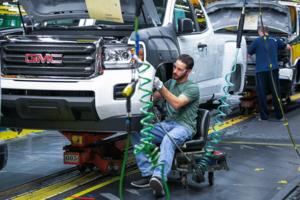
GM restarts midsize truck production after strike ends at supplier plant
General Motors Co. restarted production of midsize trucks after seat supplier Lear Corp. and the United Auto Workers reached a tentative agreement, ending a work stoppage at the Lear plant that halted GM's production at its Wentzville, Missouri, facility for a few days.
The 500 members of UAW Local 282 returned to work Thursday morning. The ...Read more
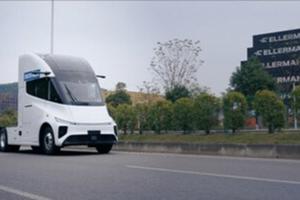
Report: Chinese electric truck manufacturer plans Georgia factory
Chinese electric truck startup Windrose plans to open a manufacturing plant for its fleet of semi-trucks in Georgia, according to Reuters.
Windrose founder and CEO Wen Han told the news outlet Friday it would build its first U.S. factory to assemble truck chassis and other Chinese-made vehicle parts into semi-trucks for the American market. Han...Read more
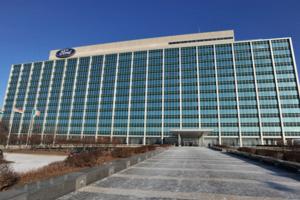
Ford posts 5.3% profit decline in second quarter from warranty costs
Ford Motor Co. said Wednesday it made $1.8 billion in net income in the second quarter of 2024, a 5.3% decline year-over-year from increased warranty costs.
The profit that represented 46 cent earnings per diluted share came on $47.8 billion in revenue, which was up 6.2%. Those are mixed results compared to Wall Street expectations. Analysts, ...Read more
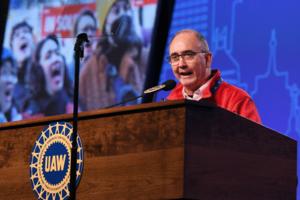
UAW withholds Harris endorsement as Fain bashes Trump
WASHINGTON — United Auto Workers President Shawn Fain, speaking to a teachers union Wednesday, repeatedly bashed Republican presidential nominee Donald Trump but did not once mention the Democrats' new prospective nominee, Vice President Kamala Harris.
The union — a key group within American labor organizing, the auto industry and ...Read more
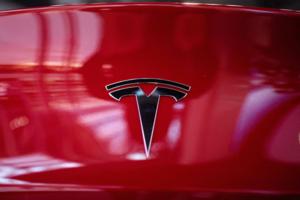
Tesla misses profit estimates, extending weak start to 2024
Tesla Inc. fell short of Wall Street profit estimates in the second quarter, extending a rocky start to the year marked by slower sales and mass firings across the company.
It was the fourth consecutive miss for the electric-vehicle maker, which on Tuesday reported adjusted earnings of 52 cents a share, short of the average analyst estimate of ...Read more
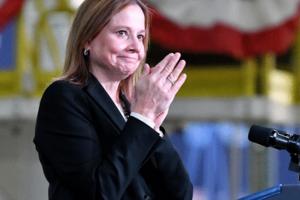
GM posts strong 2nd quarter earnings, tops Wall Street expectations
Leaning on a strong North American business, General Motors Co. beat expectations on Tuesday with second-quarter net income up 14% year over year to $2.9 billion on revenue of $47.9 billion, up 7%.
For the second consecutive quarter, GM increased its guidance for the year to adjusted earnings in the range of $13 billion to $15 billion, up from ...Read more
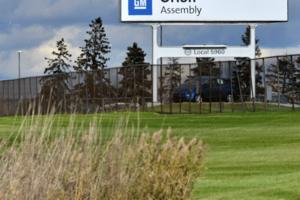
GM delays Orion electric truck production by another six months
General Motors Co. is again delaying the launch of electric truck production at its Orion Assembly plant, this time by six months to mid-2026, CEO Mary Barra told investors during the automaker's second-quarter earnings call Tuesday.
GM in October 2023 pushed back the launch of the electric trucks at the plant in Orion Township, Michigan, by ...Read more

A new world coming: Bus maker Blue Bird embraces an electrified future
The site where Muhammed Ali’s motor home was built will soon be humming again.
Not that The Greatest was the only one to snap up a WanderLodge back in the day when Blue Bird workers were churning out the 40-foot long, 6 mile-per-gallon behemoths. The $350,000 RVs were often outfitted with a bedroom, complete kitchen and several televisions.
...Read more
GM Wentzville plant down during UAW strike at Lear seating plant
Production at General Motors Co.'s Wentzville, Missouri, midsize truck plant is down as the automaker awaits the end of a labor dispute at the plant's seat supplier plant owned by Lear Corp.
Five hundred Lear workers represented by United Auto Workers Local 282 are on strike "for their fair share," UAW Region 4 Director Brandon Campbell said in...Read more
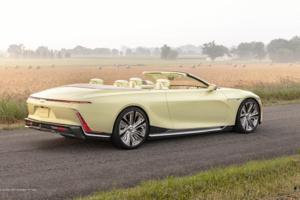
Revealed: Cadillac unveils Sollei electric concept convertible
In a bid to show the world what it's capable of, Cadillac on Monday revealed the Sollei ultra-luxury concept electric convertible that takes a bite out of the brand's history while showcasing the best of new technology.
Building off of the hand-built, high-luxury electric Celestiq, Sollei, which combines 'SOL' (sun) and 'LEI' (leisure), ...Read more
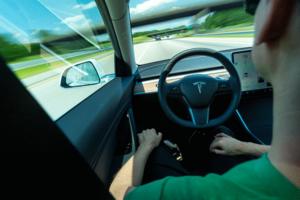
Lawsuit claims Tesla 'Autopilot' killed father of two in California crash
Jason Bolton turned on Tesla's controversial "Autopilot" system while driving his Model 3 to a business meeting in the Bay Area from his Fresno, California, home. But just as he reached the Route 152 summit, the system malfunctioned, sending the car careening into a fatal crash, a lawsuit against Tesla by his wife and two daughters claims.
The ...Read more
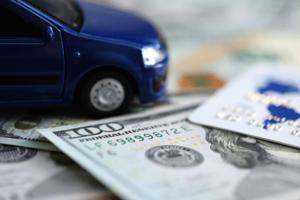
Motormouth: Do I really need a new radiator?
Q: I recently completed a 1,400-mile trip in my 2018 Cadillac XT5. Once home I took the car in for an oil change and was told that my radiator was about a quart low of coolant. The service adviser said I need to install a new radiator because it must be leaking. Do I really need to replace the radiator at a cost of $1,900? Temp gauge shows the ...Read more
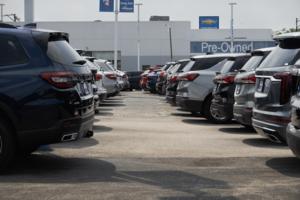
Why the presidential race could be affecting US car sales
Inflation and high interest rates are weighing down sales of new cars and trucks in San Diego and across California but some industry analysts and dealers suspect another factor is quickly coming into play — anxiety about the upcoming presidential election.
“In my experience, when there’s uncertainty in national or international or state ...Read more
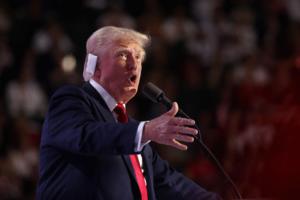
Donald Trump uses convention stage to call for UAW leader's firing
MILWAUKEE — Republican presidential nominee Donald Trump used the spotlight of his party's national convention on Thursday night to call for the firing of the leader of the United Auto Workers, escalating his ongoing feud with Shawn Fain, whose union labeled Trump a "scab."
Trump made his comment after saying China was building auto plants ...Read more
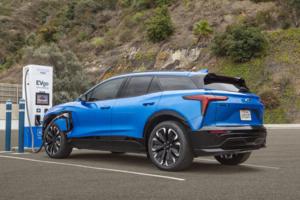
EV road-trippers find ways to stay charged up
WASHINGTON — As roadside chargers have become more common across the country, great American road trips are possible with electric vehicles. But they're not seamless.
A recent Fourth of July visit to West Virginia in the new 2024 Chevrolet Blazer EV from this Washington policy reporter, plus conversations with Michigan EV drivers accustomed ...Read more
Popular Stories
- A new world coming: Bus maker Blue Bird embraces an electrified future
- Auto review: Ford Explorer ups game with interior remake, BlueCruise
- Auto review: 2025 Mini Cooper S Hardtop: a beguiling icon returns
- Auto review: 2024 KIA EV9 is EV comfort with a luxury price
- Henry Payne: Corvette ZR1 drops mic with 1,000+ horsepower





